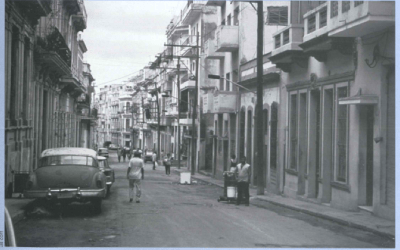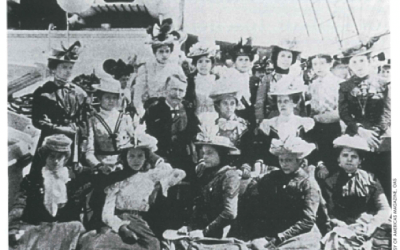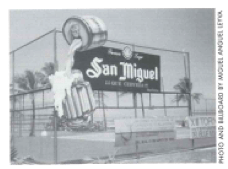Instituto de Medicina Tropical
Instituto de Medicina Tropical “Pedro Kouri” (IPK), Cuba’s leading research institute and treatment center in the field of tropical medicine and infectious diseases is well known as one of the foremost institutions in its field in the Americas. In the pre-Revolutionary era, it developed close links to the Harvard Medical School, and those links are being carried on today, as part of the institutional exchanges established by DRCLAS with the support of the John D. and Catherine T. MacArthur Foundation.
“The Kouri Institute is one of the finest infectious disease and parasitology programs in Latin America, and it’s a shame that they’ve been isolated by the embargo,” noted Dr. Paul Farmer, Associate Professor of Social Medicine and a member of the DRCLAS Policy Committee. Farmer also noted that Dr. Jorge Perez, who visited Harvard last year under the Harvard-IPK exchange program, is on the board of Harvard Medical School’s Program in Infectious Disease and Social Change.
Dr. John David, Richard Pearson Strong Professor of Tropical Health at the Harvard School of Public Health, has been an actively promoting faculty and student exchanges with IPK. David said that he was impressed that Cuba appears to be the only country in the world said to have truly controlled dengue.
According to Dr. Gustavo Kourí, director of the IPK, the Harvard exchanges were stimulated by a chance encounter with David in Geneva at a conference six or seven years ago. Although David expressed enthusiasm for exchanges-according to Kourí-“the political situation at the time didn’t facilitate such visits.” In 1998, Kourí invited David to Cuba for a conference; David told him that he had a letter prepared to send Kourí even before the invitation.
Kourí said that both David and Farmer had been invited to the Fourth International Conference on HIV/AIDS in Cuba, Central America, and the Caribbean, scheduled to take place in Havana in January, 2000.
The Harvard exchange program with IPK now involves short term visits to Harvard by senior IPK research staff. In addition, the Harvard Medical School has agreed to waive tuition for two advanced or post-doctoral students per semester to participate in training and research programs, including the one-year Masters in Public Health. On the Cuban side, the IPK has agreed to incorporate medical students from Harvard into ongoing clinical and research projects on a case by case basis. The IPK is a UNESCO-approved training institute, which trains more than 1000 people each year from 69 countries.
Kourí indicated that the IPK needed help with its library and with receiving scientific and academic journals. He said that Cuba currently does not have the hard currency to purchase many of these scientific materials. He sees the student and faculty exchanges with the United States as a priority.
“We would like to step up our scientific-academic exchanges,” said Kourí, whose father founded the IPK in 1937. “We need to know more about each other.”
Winter 2000
Related Articles
The “Wordly” Classroom
Nearly two years ago, I took 17 graduate public policy students from Harvard’s Kennedy School of Government, ages 23 to 40, to Cuba as part of a short course called…
The Summer School for Cuban Teachers
A hundred years ago, 1,300 Cuban teachers traveled to Harvard to get the training they needed to cope with the new American-style educational system imposed on Cuba by the…
Socialism with Commercials
A cacophony of sounds and colors welcomed the visitor to the annual Havana Commercial Fair at ExpoCuba on the outskirts of Havana. Displays of rum, mattresses, shampoos, cab services…




